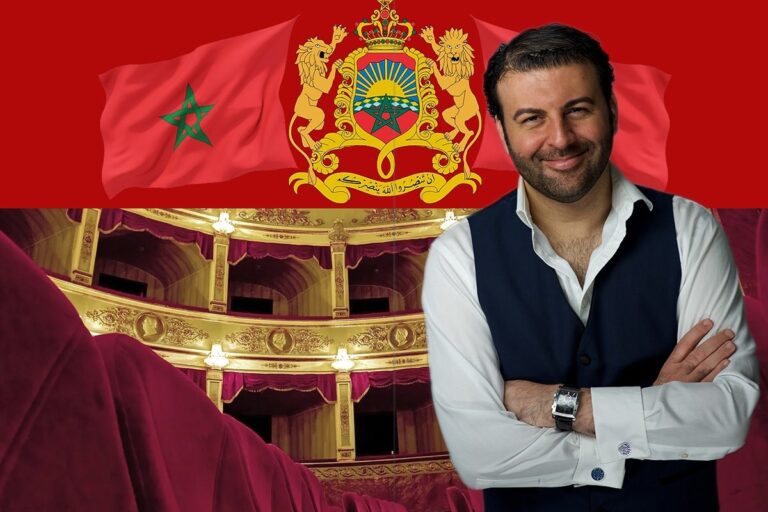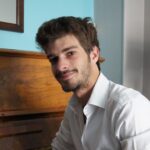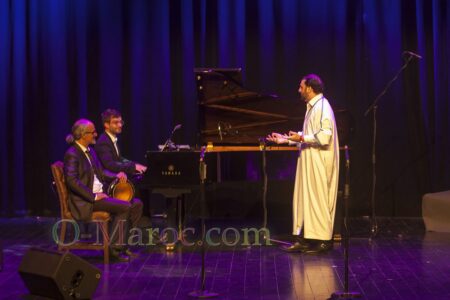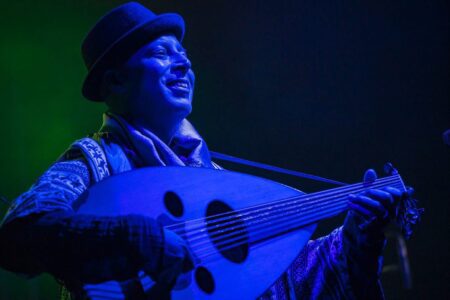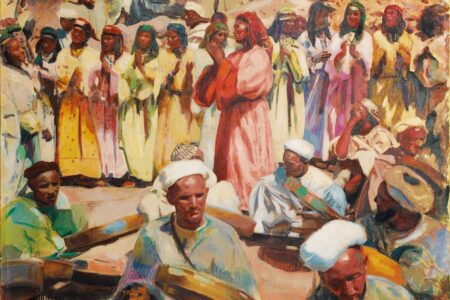Do you know David Serero? To my great shame, until last week, “I did not”. Fortunately, a tweet allowed me to discover him and his crazy project of the Royal Opera of Morocco.
I’m a big opera fan. And here, there isn’t any. Just the possibilities of online performances, whether at home or in the cinema. The Covid had actually allowed me to discover a lot of possibilities, some of which are still open.
But of course, it’s not worth the experience of a live performance, with an audience that vibrates with you.
And that, in Morocco, I never had. Because opera is expensive and, a priori, it is far removed from Moroccan culture.
Opera is “anything but” Moroccan?
So I was surprised when I heard David Serero explain that opera could be Moroccan, that he wanted to put on stage what was Moroccan in opera.
Because there is nothing in the Moroccan musical tradition, whether it is the Aïta, the Malhoun, the Gnawas or the Amazigh songs, that comes close to opera.
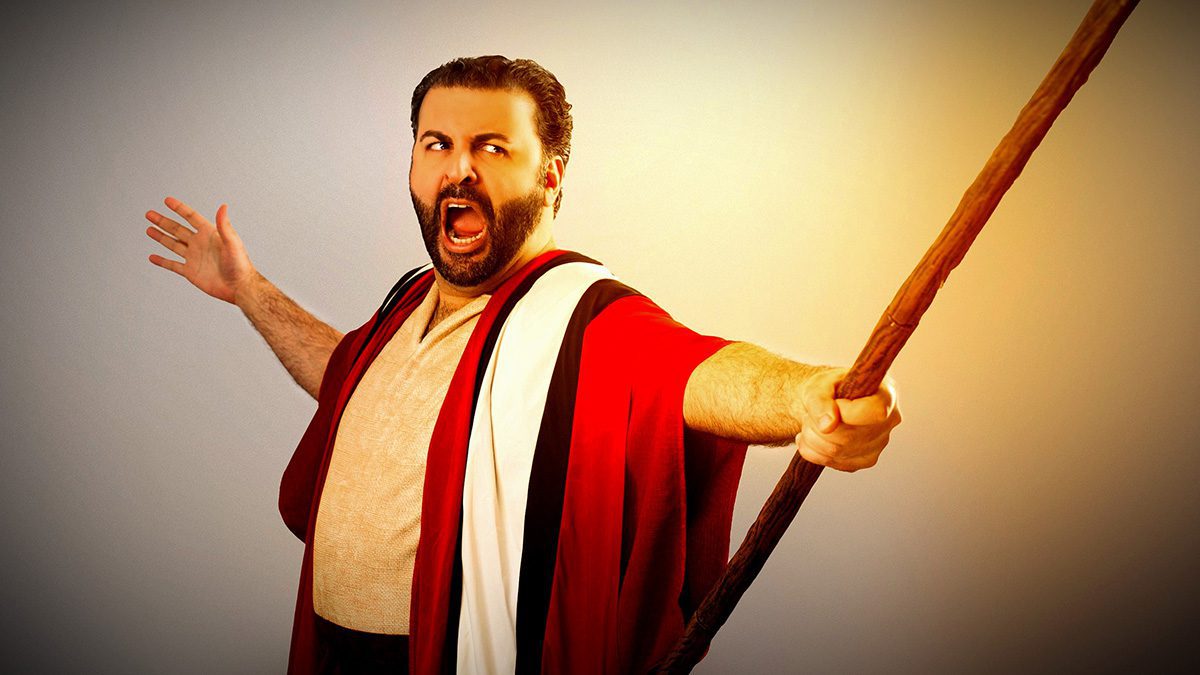
Opera is first and foremost a deep way of singing, which comes from the belly, phrasing, rhythms and melodies that are absolutely not found in this world of “Arab” music in the broad sense. This does not mean that there is no Arab music, quite the contrary. It simply means that a Moroccan, compared to what he is used to hearing and appreciating, will be as confused as I am when I see a Kabuki theatre show or the Angkor apsaras: it’s beautiful, but I have absolutely no codes to “enter” the show.
Opera is also – theoretically – a great show with many instruments that are not found in this musical tradition, which is also shaped by religion and which, in its strictest version, only admits percussion and a few strings, the lute (oud) first.
So how can we make Moroccans love opera?
Do not forget that opera can be popular

Like all music, in a way, opera has to be learned if you want to appreciate it. There is a lot of music that you “learn” simply by impregnation by listening to the radio. Opera, which is an expensive show, which requires a hall, an orchestra of classical musicians, etc., has a reputation as an elitist art form, and we are not exposed to it very much, on a daily basis.
In fact, opera has been a popular art. Do you know Verdi?
One of his greatest successes, Nabucco, breaks all the codes of opera at the time. His wild romanticism went far beyond pure musical quality and met the political concerns of the Italians. His name would become a symbol of Italian nationalism, since Viva Verdi also meant Viva Vittorio Emanuele Re D‘Italia (Viva Victor Emmanuel King of Italia), quite a paradix for a patriotic but republican author, whose Nabucco shows the risks of a king’s madness…
With music and subjects that speak to Italians, Verdi is an immensely popular opera composer. A sort of Beyonce of the time…
David Serero, baritone and cultural facilitator
So, to sum up, for Moroccans to like opera, it has to ‘speak’ to them in every sense of the word, including the language. They also need to be told about it. And their love of music will do the rest.
Making “Verdi for Morocco
What David Serero wants to do is a “100% Moroccan” product. With Moroccan artists. Texts translated into Moroccan (as he has already done for Othello), staging where Moroccan culture is invited, with djellabas, caftans… Why not? Do we present 17th century operas in modern costume?
This is my know-how.
Helping the public to discover the opera, making them appreciate it by explaining what is going to happen, presenting the best of the genre, that’s my know-how
David Serero is exactly the right person to do that. If he is an opera singer, it is almost by chance, and it is not his initial training. For him, before he “fell into it”, opera was a “thing that lasts eight hours, German with singers of 500 kilos“.
How do you become an opera singer when it is not your culture?
By starting to play the piano, going to New York and playing jazz. Getting your wrist in a cast. Turning the disaster that befalls the pianist into an opportunity to do something else: write songs and sing them.
Being told you have the voice of an opera singer.
To get over one’s view of fat singers, to go and listen to Turandot at the Metropolitan Opera (an Italian opera, not a German one, but one that has often been sung by Pavarotti, not exactly a lightweight singer).
Being so enthralled that you go back the next day to learn how to become an opera singer. Crossing paths with James Levine and diving into this new career for which other singers train for years.
Singing, singing and more singing
He made his debut at the age of 26 in Carmen.
This workaholic will now sing the greatest operas (Carmen, Nabucco, Rigoletto, Don Giovanni, The Merchant of Venice etc.) in prestigious halls such as Carnegie Hall.
All kinds of singing, and everything else
You might think that David Serero would stick to opera?
Not at all.
If his move into the “lighter” territory of operetta is not surprising, he has not forgotten his first loves either, putting on shows with great jazz singers such as Jermaine Jackson (yes, the big brother), whom he even produced in France, acting in the cinema, doing comedy shows, producing films (a documentary on Hélène Grimault, another on Elie Tahari, this Moroccan who became a tailor to the stars in the United States).
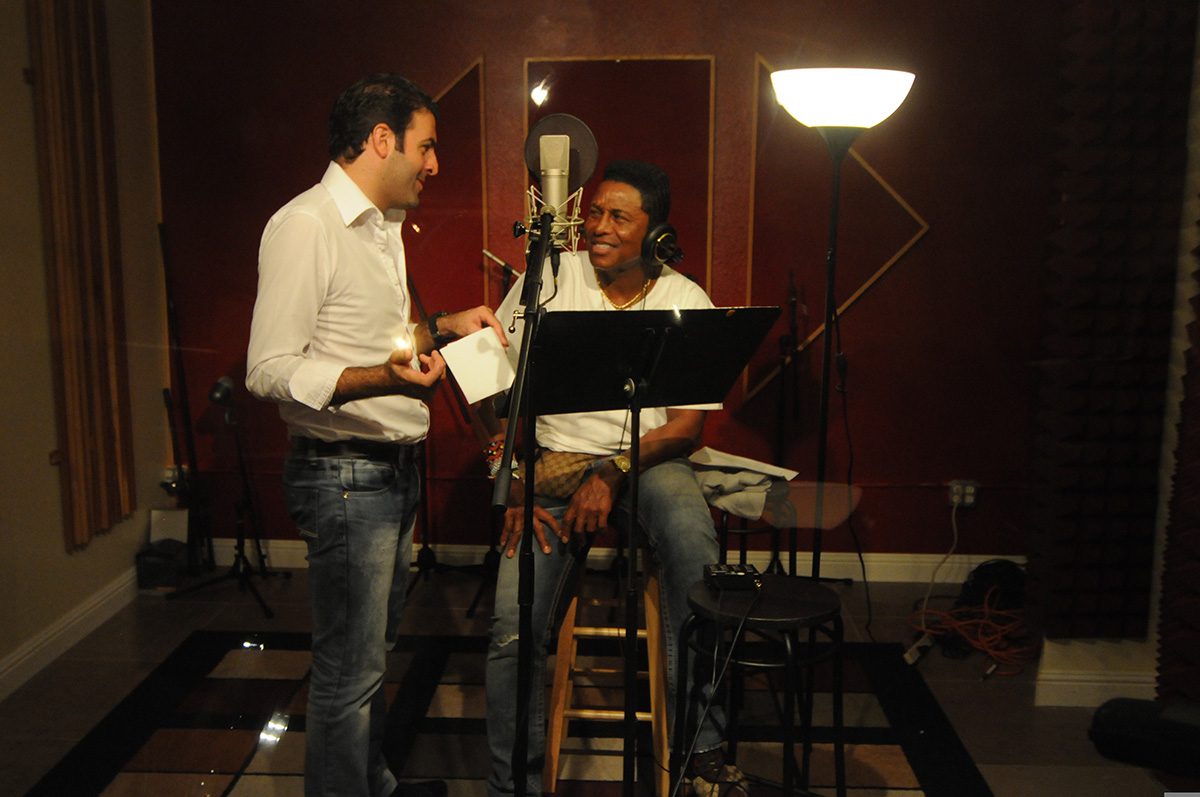
Author, too
David Serero goes further than the “Moroccanisation” of existing works.
He is currently writing an opera in Darija, on an exclusively Moroccan theme, which will be performed in a few months’ time in Morocco with his Moroccan troupe. An opera as popular as Verdi’s, in everyday Moroccan, as Verdi composed on an Italian libretto!
The Royal Moroccan Opera
The idea of setting up a Moroccan opera company in Morocco had been in the pipeline for a long time, even if David Serero seems to have the talent to fit 48 hours into one day, it took the period of calm imposed by Covid for the project to mature and lead to this company.
Putting all this together in less than two years requires a lot of energy and also the help of many people here who were seduced by the project. Among the supporters are the Ministry of Culture, the C.C.M.E., the R.A.M., the municipality of Casablanca…
The singers are all Moroccan, having trained and performed abroad, but attached to Morocco, like David Serero.
The opening gala, 30th November 2022
The first event takes place this Wednesday 30 November, at 8pm, in the Studio des Arts Vivants.
The programme is deliberately vague:
Opera arias and other surprises
Surprises certainly in line with its many activities!
The choice of the Studio des Arts Vivants was obvious: firstly because it is a very beautiful venue, and also because the spirit of the place corresponds perfectly to what the Royal Opera wants to be – a lively, current and popular show, which is not stuck in an elitist vision.
The price of tickets is also very reasonable, designed to bring culture within everyone’s reach: 150 and 250 dirhams (by way of comparison, performances broadcast in cinemas, such as the Metropolitan’s shows at the Rif cinema, cost 300 dirhams and more.
There are still a few tickets left which can be purchased online here.
After the opening gala
A troupe is not a one-shot show.
So there are many projects, as I said, in a few months an original opera in Darija. There are also two other operas planned, Carmen and Othello, both translated and Moroccanised. Other shows, too, and the gradual establishment of a “Moroccan opera” ecosystem.
 A typo or syntax error? You can select the text and hit Ctrl+Enter to send us a message. Thank you! If this post interested you, maybe you can also leave a comment. We'd love to exchange with you !
A typo or syntax error? You can select the text and hit Ctrl+Enter to send us a message. Thank you! If this post interested you, maybe you can also leave a comment. We'd love to exchange with you !

